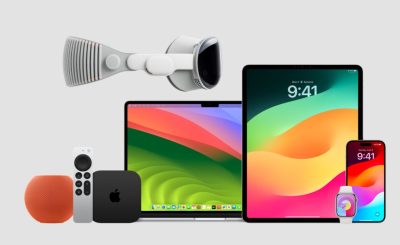Visits: 8
Nursing Breast Pumps In Nigeria
Breast feeding plays a vital role in infant development, offering crucial nutrients and strengthening the bond between mother and child. However, some mothers face challenges like work commitments, health issues, or convenience, leading them to explore alternative feeding methods while still ensuring their babies receive the benefits of breast milk. In Nigeria, nursing breast pumps have become essential tools, enabling mothers to express and store breast milk, thus continuing to provide their infants with this valuable nourishment. In this post we are going to explain the different types of blog post and where to purchase them in Nigeria.
These devices are particularly valuable for working mothers or those experiencing difficulties with direct breastfeeding. You can buy your quality breast pumps at various e-commerce like komback. The rising popularity of breast pumps in Nigeria reflects the increasing awareness of the benefits of breastfeeding, offering a practical solution for nursing mothers to balance their responsibilities while meeting their babies’ nutritional needs amidst advancing technology and evolving breastfeeding practices. In the section below we will look at the types of breast pumps and where to buy it in Nigeria
Types Of Breast Pumps
When selecting a breast pump, it’s essential to consider various factors to find the right fit for your needs. Factors such as suction type, the number of settings, and portability are crucial to weigh. If you’re unsure about which pump to choose, consulting your doctor or a lactation consultant is a wise step. Here are some different types of breast pump;
- Manual Breast Pumps
These simple, hand-operated devices are affordable and portable, suitable for occasional use or budget-conscious mothers. They are easy to use, with minimal assembly and fewer parts to clean. However, they may require more effort and time, making them less ideal for busy moms.
- Electric Breast Pumps
Powered by electricity or batteries, electric pumps are efficient and less physically demanding than manual ones. They come in single and double pump configurations, enabling simultaneous milk extraction from one or both breasts. Electric pumps are beneficial for frequent or extended pumping sessions, though they are pricier and bulkier compared to manual pumps.
- Battery-Powered Breast Pumps
These pumps offer a convenient option for on-the-go mothers, combining portability with the efficiency of electric pumps. They are ideal for situations where a power source is unavailable. However, be mindful of battery life limitations and the potential need for replacement batteries, which can add to the overall cost.
Where to Purchase Nursing Breast Pumps
In Nigeria, nursing breast pumps are available for purchase through various channels. Here are some places where you can find them:
Pharmacies and Medical Supply Stores: Many pharmacies and medical supply stores cater to the needs of new mothers by offering nursing breast pumps. They typically carry a variety of brands and types, allowing mothers to compare options before deciding on a purchase.
Online Retailers: The rise of e-commerce has led to several online retailers specializing in selling nursing breast pumps. Platforms like Komback, Jumia, Konga, and Amazon Nigeria provide a wide selection of breast pumps from different manufacturers, offering the convenience of browsing and purchasing from the comfort of one’s home.
Baby Specialty Stores: Baby specialty stores and maternity shops may also have nursing breast pumps in stock. These stores often employ knowledgeable staff who can assist mothers in selecting the most suitable pump based on their needs and budget.
How To Use A Breast Pump
Once you have made the decision to purchase a breast pump, it becomes crucial to familiarize yourself with its proper usage. While the instructions provided with the pump will give you a basic understanding of its functioning, it is advisable to take additional steps to ensure you are using it correctly for maximum efficiency and comfort.
One valuable resource for learning more about using your breast pump effectively is online videos. Many platforms host instructional videos, where experienced users or lactation experts demonstrate the proper techniques and share helpful tips. These videos can provide visual guidance, making it easier to understand the nuances of using the breast pump efficiently.
Another beneficial option is seeking guidance from a lactation consultant. Lactation consultants are trained professionals who specialize in supporting and assisting mothers with breastfeeding-related concerns. They possess in-depth knowledge about breast pumps and can offer personalized advice tailored to your specific needs. Whether you have questions about proper pump settings, positioning, or any other aspect of using the pump, a lactation consultant can provide expert guidance.
By combining the instructions provided with the pump, online instructional videos, and the expertise of a lactation consultant, you can equip yourself with comprehensive knowledge and gain confidence in using the breast pump. This preparation will help ensure a comfortable and successful pumping experience, making it easier for you to provide your baby with the valuable nourishment of breast milk while also accommodating your lifestyle and needs.
Advantages of Nursing Breast Pumps
Using a breast pump in Nigeria offers numerous benefits for mothers and their babies:
- Maintaining Milk Supply
Breast pumps are invaluable for mothers who cannot breastfeed directly, such as working mothers. By expressing milk with a breast pump, they can maintain their milk supply and ensure their babies receive the nourishment of breast milk even when apart.
- Relieving Pain and Discomfort
Breast pumps help mothers alleviate pain and discomfort that may arise during breast sucking. The suction from the pump can massage the breasts and express backed-up milk, providing relief and improving overall comfort.
- Versatility
Nursing breast pumps can be used in various settings, offering convenience and flexibility. Whether at home, work, or on the go, mothers can continue expressing milk to meet their babies’ needs.
- Workplace Support
Many employers have lactation policies that entitle nursing mothers to pump breaks at work. Breast pumps enable mothers to continue breastfeeding even after returning to work, contributing to the well-being of both mother and baby.
- Increased Milk Supply
Regular and efficient pumping stimulates milk production, making nursing breast pumps valuable for mothers facing challenges with low milk supply. Consistent pumping can encourage the body to produce an adequate amount of milk for the baby’s needs.
- Involvement of Other Caregivers
Nursing breast pumps allow other caregivers, such as partners or family members, to participate in feeding the baby. This involvement fosters bonding and provides much-needed support to mothers, especially during the early stages of motherhood.
Disadvantages of Nursing Breast Pumps:
Using a breast pump in Nigeria comes with some challenges that mothers should be aware of:
- Cost
Breast pumps can be expensive, especially electric models, which tend to have higher price tags. This cost may be a barrier for mothers on a tight budget, but there are more affordable options available in the market.
- Time-Consuming
Learning how to use a breast pump effectively and getting used to the pumping process can be time-consuming. It may take some time for mothers to become comfortable and proficient with the pump.
- Noise
Breast pumps can be noisy during operation, which may be a concern, especially when pumping in public places. Opting for a quieter pump designed for discreet use can address this challenge.
- Cleaning and Maintenance
Breast pumps require regular cleaning and maintenance to ensure hygiene and optimal performance. The process of disassembling, cleaning, and sterilizing the parts can be tedious and add to the mother’s responsibilities.
- Discomfort and Learning Curve
Initially, some mothers may experience discomfort when using a breast pump. However, this discomfort often diminishes over time as they become more accustomed to the sensation. Learning to use the pump correctly to express milk efficiently may also require practice and patience.
Despite these challenges, many mothers find that the benefits of using a breast pump outweigh the difficulties, as it enables them to provide their babies with the valuable benefits of breast milk while accommodating their unique lifestyles and circumstances.
How to Choose the Right Breast Pump for You
Breast pumps offer a practical solution for maintaining milk supply when direct breastfeeding is not possible and can also help alleviate pain or discomfort during breastfeeding.
After choosing a breast pump, it’s essential to learn its proper usage. While the pump’s included instructions provide a foundation, you can enhance your understanding by watching online videos or seeking guidance from a lactation consultant.
The versatility of breast pumps allows you to use them in various settings, whether at home, work, or on the go. If you’re using a breast pump at your workplace, you may have the right to pump breaks under your employer’s lactation policy.
Conclusion
Nursing breast pumps offer an excellent way to maintain milk supply and continue breastfeeding when direct feeding is not possible. If you’re considering using a breast pump, there are a few important factors to consider. Firstly, some breast pumps can be expensive, but there are affordable options available in the market. Secondly, using a breast pump may require some time to get used to and learn how to use effectively.
In Nigeria, nursing breast pumps have become indispensable tools for modern mothers seeking a balance between their daily commitments and their babies’ nutritional needs. With various types available, such as manual, electric, and battery-powered pumps, mothers can choose the one that best suits their lifestyle and preferences. The convenience and flexibility offered by nursing breast pumps empower mothers to provide their babies with the many benefits of breast milk while maintaining their individual routines.
By kingkentus









